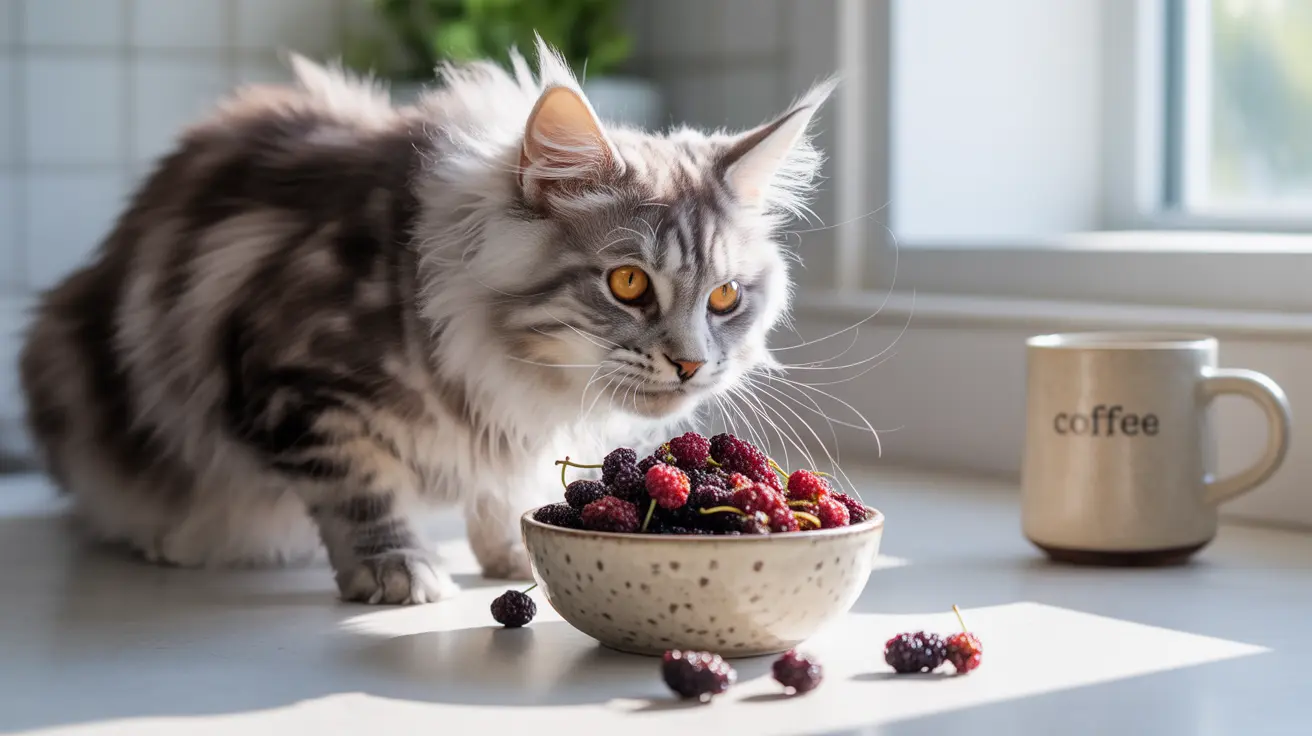Understanding Cats' Natural Diet and Mulberries
Cats are strict carnivores whose digestive systems are specifically designed to process animal proteins. Unlike humans, cats lack the ability to taste sweetness, which explains their general indifference to fruits like mulberries.
While mulberries aren't toxic to cats, they don't provide any essential nutrients that cats can't get from their regular diet. In fact, a properly balanced commercial cat food already contains all the nutrition your cat needs.
Safety Considerations When Feeding Mulberries to Cats
Although mulberries aren't poisonous to cats, several factors should be considered before offering them to your pet:
- The fiber content can cause digestive upset
- Natural sugars may contribute to weight gain
- Some cats may have individual sensitivities
- Portion control is crucial to prevent complications
Potential Health Effects and Risks
When cats consume mulberries, especially in large quantities, they may experience various effects:
Digestive Issues
- Diarrhea
- Vomiting
- Stomach upset
- Constipation
Long-term Concerns
- Weight management problems
- Dental issues from sugar content
- Possible nutrient imbalances if fed regularly
Guidelines for Offering Mulberries to Cats
If you decide to let your cat try mulberries, follow these important guidelines:
- Start with tiny amounts to test tolerance
- Only offer fresh, clean mulberries
- Remove stems and leaves
- Never feed sweetened or processed varieties
- Monitor your cat for adverse reactions
Signs of Mulberry Intolerance in Cats
Watch for these symptoms after feeding mulberries:
- Changes in litter box habits
- Lethargy or unusual behavior
- Loss of appetite
- Excessive drooling or pawing at mouth
- Abdominal discomfort
Frequently Asked Questions
Can cats safely eat mulberries, and are they toxic?
Mulberries are not toxic to cats, but they should only be given in small amounts as an occasional treat. While safe in moderation, they aren't a necessary part of a cat's diet.
What health effects can mulberries have on cats if eaten in large amounts?
Large quantities of mulberries can cause digestive issues including diarrhea, vomiting, and stomach upset. The high fiber and sugar content may also lead to weight gain and other health complications.
How should I offer mulberries to my cat to avoid digestive problems?
If offering mulberries, start with a tiny piece (less than 1/4 of a berry) and monitor your cat's reaction. Only give fresh, clean mulberries without stems or leaves, and never offer sweetened or processed versions.
Why do some cats show interest in eating mulberries even though they are obligate carnivores?
Cats may show interest in mulberries out of curiosity or playful behavior rather than actual dietary preference. Since cats can't taste sweetness, their interest is likely related to texture or smell rather than flavor.
Are dried mulberries more risky for cats compared to fresh ones?
Yes, dried mulberries are more concentrated in sugar and fiber, making them more likely to cause digestive issues or contribute to weight gain. Fresh mulberries are generally safer if offered in very small amounts.
Conclusion
While mulberries aren't toxic to cats, they should never become a regular part of their diet. If your cat shows interest in mulberries, remember that moderation is key, and always consult with your veterinarian before introducing any new foods to your cat's diet.
The best approach to keeping your cat healthy remains providing a balanced, meat-based diet specifically formulated for felines, with any fruits or human foods serving only as very occasional treats, if at all.






